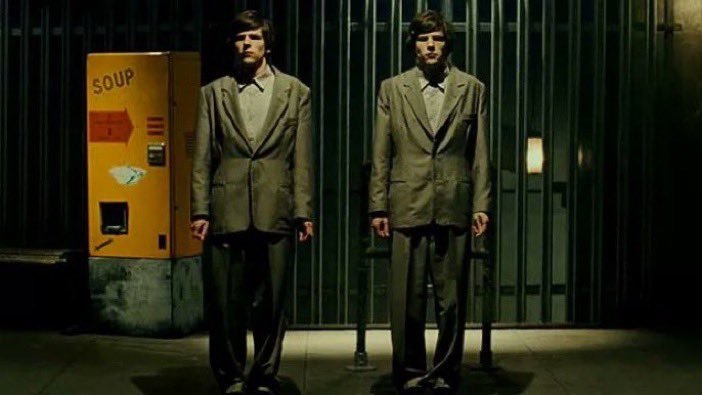Öteki Durgun bir işte çalışan utangaç ve çekingen bir adam, tıpatıp kendine benzeyen agresif, manipülatif ve kendine güvenen yeni bir iş arkadaşı edinir. Hayatını adeta devralan meslektaşı aşık olduğu kızın peşine de düşer. https://t.co/zHWWF0nNlV
Kaynak
The photo shows two identical men in identical suits, standing in front of a metal gate or fence. There's a vending machine in the foreground, between them. The joke, implied rather than explicit, plays on the concept of **perfect symmetry and uncanny repetition**. The two men are almost perfectly identical, almost like clones or duplicates. The setting is slightly surreal. The dark, slightly moody lighting and the surrounding environment contribute to the strange sense of the scene. The comedic implication is **that the two men are in fact the same person**. The idea of identical people is a common trope in comedy and film; the use of identical individuals adds an element of oddness, creating humor by playing with expectations. In Turkish, the joke could be explained as: **"Bu iki kişi aynı kişi. Aynı kıyafetler, aynı duruş, aynı yüzler... Tam birer kopyalar. Çift kişilik sorunlar da böyle başlar belki! (Bu ikisi aynı kişi olabilir mi?)"** Which translates to: "These two people are the same person. Same clothes, same posture, same faces... Perfect copies. Double identity problems might start like this! (Could these two be the same person?)" The humour lies in the absurdity of the exact duplicates and the implication that something unusual is happening.

Henüz bişi yazılmamış